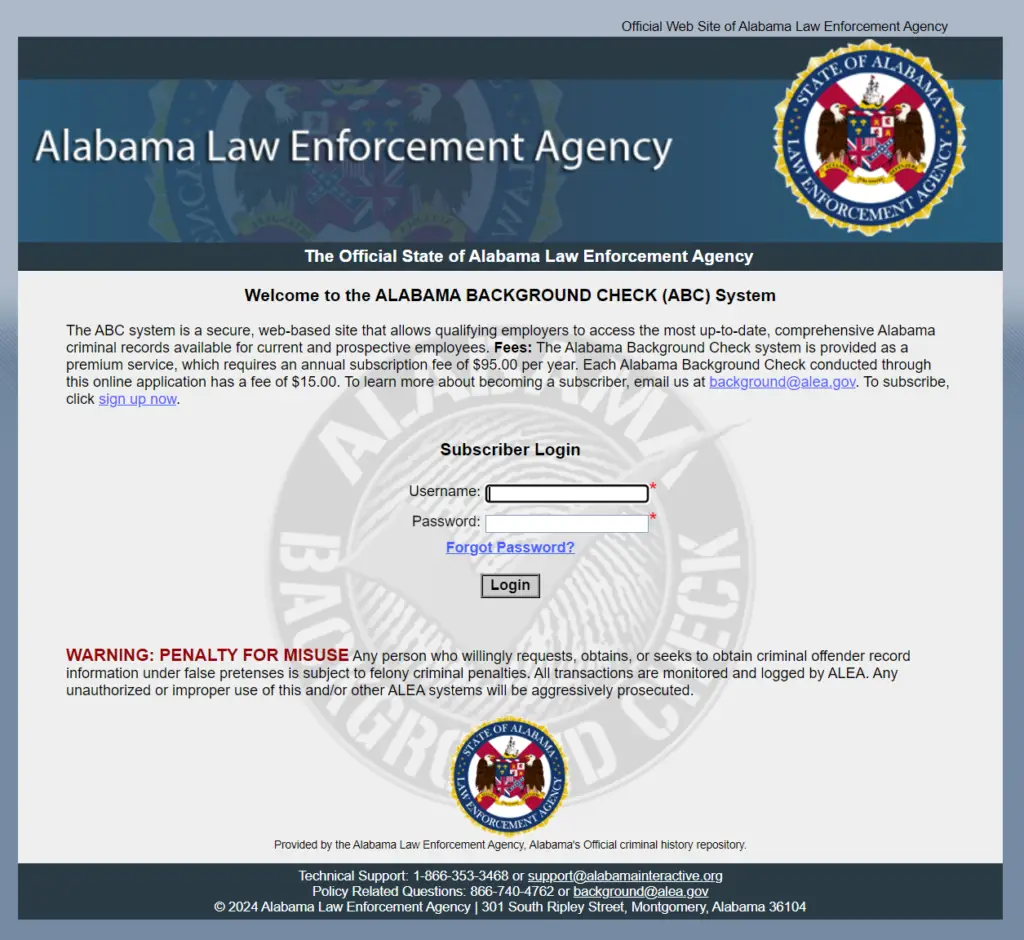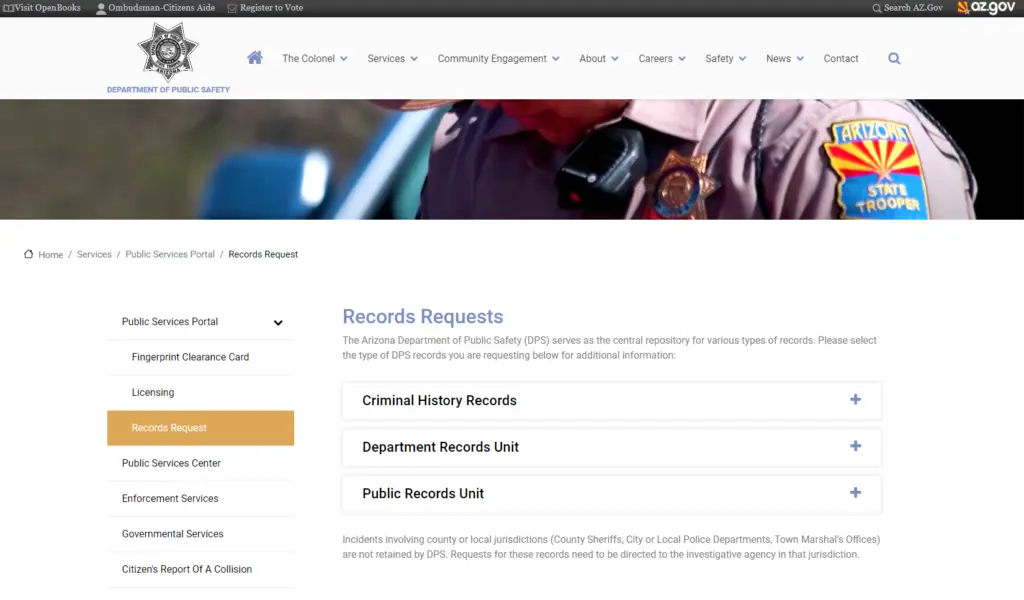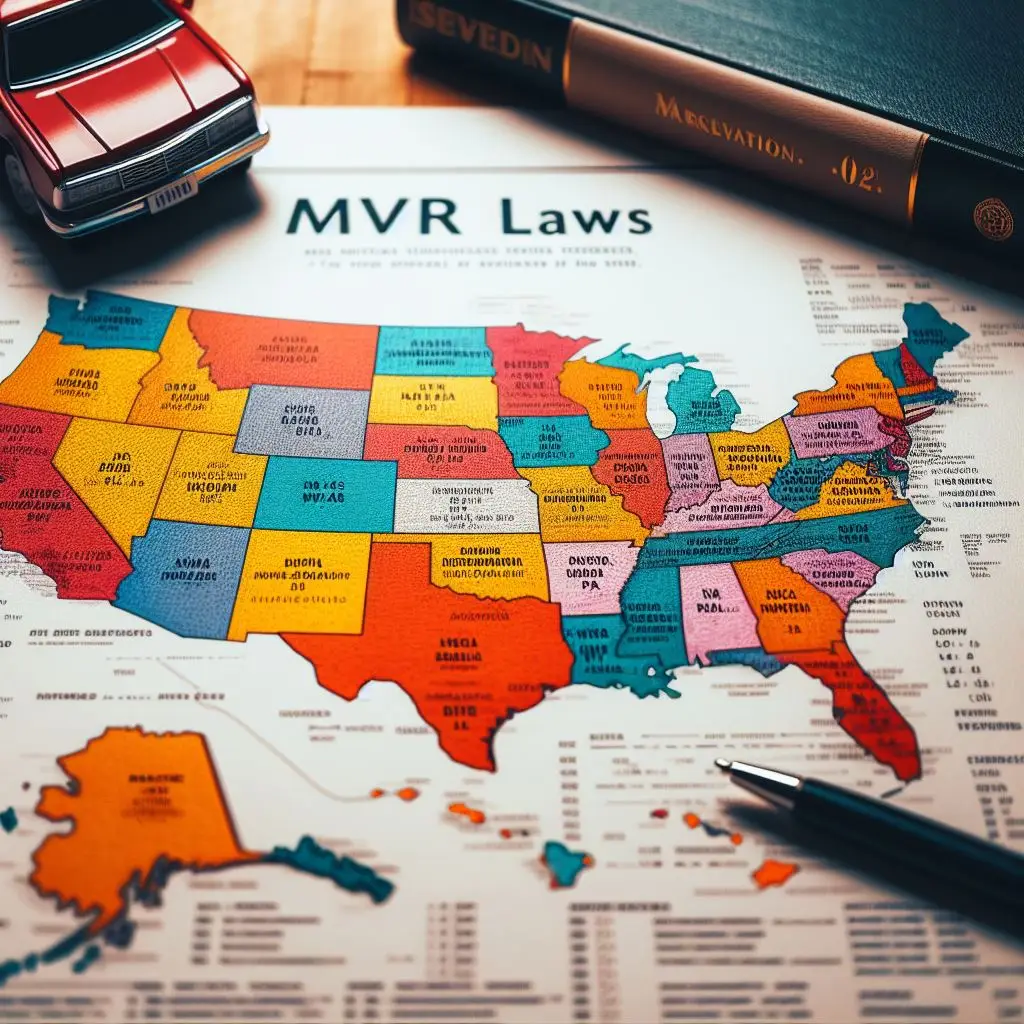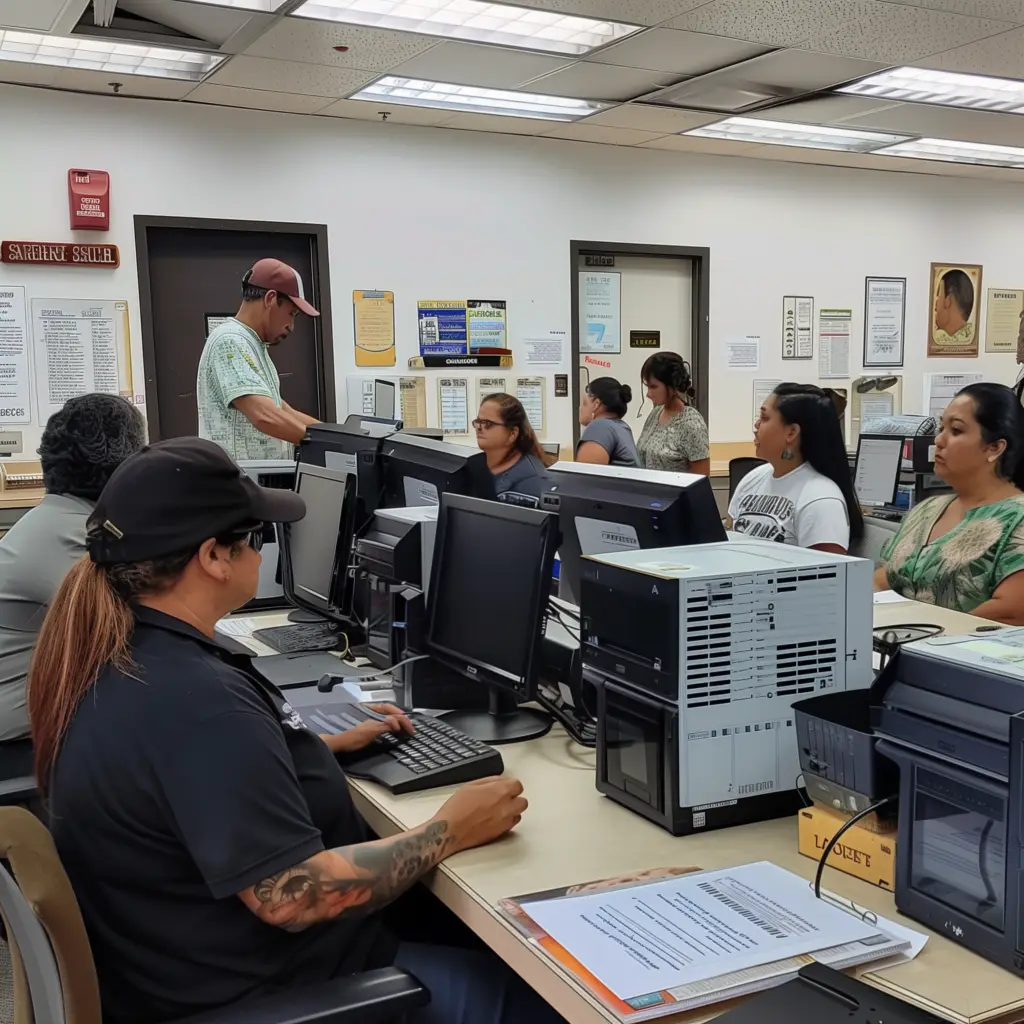ARTICLE CATEGORY
Legal & Compliance

Legal & Compliance
Internship Background Check Requirements: Best Practices for College Recruitment Programs
17 Feb, 2026 • 18 min read
Learn about the key internship background check requirements, including FCRA compliance and state-specific regulations for interns.
Read More

Legal & Compliance
Greenhouse Background Check Basics for HR Teams
13 Feb, 2026 • 11 min read
Greenhouse has earned its place as a leading, data-driven ATS that mid-size and large teams rely on daily. But when it comes to background checks, there is often a lack of clarity about what Greenhouse handles on its own versus what falls to an outside vendor. Above all, many HR...
Read More

Legal & Compliance
JazzHR Background Check Workflow: A Practical Guide for HR
13 Feb, 2026 • 8 min read
Choosing the right ATS is only half the battle. To put it another way, how that platform handles background checks can make or break your entire hiring workflow. This guide breaks down what you need to know about JazzHR's background check features, from timelines to provider options. Whether you're already...
Read More

Legal & Compliance
UKG Pro Background Check Capability: Complete Compliance Guide for HR Practitioners
6 Feb, 2026 • 8 min read
UKG Pro handles millions of employee records for firms worldwide. Yet, many HR teams remain unclear about how its background screening actually works. More importantly, they need to know how to use it in full compliance with federal, state, and local employment laws. Understanding UKG Pro's background check features matters...
Read More

Legal & Compliance
The Ultimate Background Check Guide
13 Dec, 2023 • 4 min read
Let's delve into the comprehensive world of background checks, their significance, and their intricate processes.
Read More

Legal & Compliance
Navigating Ban-the-Box Laws in Hiring
13 Dec, 2023 • 19 min read
Explore the technical intricacies of Ban the Box policies, from fair evaluation and individualized assessment to record keeping.
Read More

Legal & Compliance
Understanding Criminal Background Checks
5 Jan, 2024 • 11 min read
In today's world, safety and trust are more important than ever. This is where criminal background checks come in. They are a key tool for making sure people and places are safe.
Read More

Legal & Compliance
Legal and Ethical Considerations
5 Jan, 2024 • 6 min read
It is essential to navigate these aspects with diligence to ensure a fair, unbiased, and legally sound hiring process.
Read More

Legal & Compliance
Legal Considerations for Background Checks
5 Jan, 2024 • 5 min read
To navigate the complex landscape of background checks effectively, it's crucial to have a comprehensive understanding of the relevant laws and regulations that govern them.
Read More

Legal & Compliance
How Long Does Delta 8 THC Stay in Your System?
26 Jan, 2024 • 5 min read
Delta 8 THC has garnered significant attention in the cannabis world due to its unique properties and effects. Unlike its more famous counterpart, Delta 9 THC, Delta 8 is known for providing a milder high with fewer psychoactive effects.
Read More

Legal & Compliance
How Long Does CBD Stay in Your System?
26 Jan, 2024 • 4 min read
Cannabidiol (CBD), a compound found in cannabis plants, has gained immense popularity for its potential health benefits, especially in pain management, anxiety relief, and improving sleep quality.
Read More

Legal & Compliance
Understanding the 10-Panel Drug Test: A Comprehensive Guide
26 Jan, 2024 • 10 min read
In the world of drug testing, the 10-panel drug test is a common and comprehensive screening method. This article aims to explain what a 10-panel drug test entails, what substances it detects, and its typical uses.
Read More

Legal & Compliance
How to Dispute a False Positive Drug Test: Best Practices
30 Jan, 2024 • 14 min read
False positive drug test results can be a nightmare, affecting both personal lives and professional careers. These erroneous outcomes can occur for various reasons, including medications, foods, and other substances.
Read More

Legal & Compliance
Best Practices in Civil Background Checks
30 Jan, 2024 • 9 min read
Civil background checks are a crucial component of the pre-employment screening process. They provide employers with valuable insights into a candidate's legal, financial, and personal history, helping them make informed hiring decisions.
Read More

Legal & Compliance
Navigating Employment Credit Reports
2 Feb, 2024 • 7 min read
Background checks for bankruptcy are a pivotal element in today's employment landscape. In this article, we'll explore the paramount importance of background checks in employment, delving into their significance from the perspectives of both employers and job applicants.
Read More

Legal & Compliance
National Background Checks: A Comprehensive Guide for HR Managers
12 Feb, 2024 • 10 min read
National background checks are essential for HR managers to ensure a safe and compliant workplace. They provide a detailed overview of an individual's history, including criminal records, employment history, education credentials, etc.
Read More

Legal & Compliance
Understanding the EEOC Complaint Process
27 Feb, 2024 • 10 min read
For HR decision-makers, understanding EEOC complaints is crucial, as mishandling them can lead to severe consequences for businesses.
Read More

Legal & Compliance
Remote Job Background Checks: HR Considerations
27 Feb, 2024 • 5 min read
Ensuring a thorough and compliant background check process is essential for maintaining a safe and productive work environment.
Read More

Legal & Compliance
Navigating California Background Check Laws (ICRAA & CCRAA)
28 Feb, 2024 • 6 min read
Background checks serve as a critical tool to assess the suitability and integrity of candidates. However, the legal framework governing these background checks in California is particularly intricate.
Read More

Legal & Compliance
Understanding the Alabama Background Check (ABC) System: A Guide for Employers
28 Feb, 2024 • 5 min read
Conducting thorough background checks is essential for employers to ensure the safety and integrity of their workforce. In Alabama, the Alabama Background Check (ABC) system provides a streamlined and reliable method for conducting these checks.
Read More

Legal & Compliance
Understanding Arizona Criminal History Records Information (ACHRI)
29 Feb, 2024 • 5 min read
The Arizona Criminal History Records Information (ACHRI) system is vital for HR professionals, law enforcement, and public safety officials.
Read More

Legal & Compliance
Understanding New York Background Check Laws: What Employers Need to Know
10 Mar, 2024 • 13 min read
Background checks play a crucial role in the hiring process for employers, helping them make informed decisions and ensure a safe and productive work environment.
Read More

Legal & Compliance
Background Check Questions: Best Practices and Compliance
10 Mar, 2024 • 5 min read
Background checks play a crucial role in recruitment and hiring, ensuring the suitability of candidates for a position. However, employers must navigate this process carefully, especially when asking sensitive questions.
Read More

Legal & Compliance
Alcohol Testing in Workplace Drug Screening: A Comprehensive Guide for HR Professionals
10 Mar, 2024 • 7 min read
In the realm of workplace drug testing, alcohol testing plays a unique and significant role. As HR professionals, understanding the nuances of alcohol testing is crucial for maintaining a safe and productive work environment.
Read More

Legal & Compliance
A State-by-State Guide to MVR Laws
11 Mar, 2024 • 12 min read
Motor Vehicle Records (MVRs) are crucial components of background checks, especially for employers looking to assess the driving history of potential employees.
Read More

Legal & Compliance
Protecting Your Illinois Business with Thorough Background Checks
20 May, 2024 • 12 min read
Did you know a bad hire can cost your business up to 30% of that employee’s annual salary? This cost can be even higher for Illinois businesses when considering turnover, lost productivity, and potential litigation.
Read More

Legal & Compliance
The Ultimate Guide to North Carolina Background Checks
21 May, 2024 • 12 min read
In North Carolina, background checks ensure safety, trust, and compliance in various aspects of life. They are used by employers, landlords, volunteer organizations, and individuals to verify the history and credentials of potential employees, tenants, volunteers, and others.
Read More

Legal & Compliance
The Ultimate Guide to Florida Background Checks for Employers
21 May, 2024 • 13 min read
Background checks are crucial for Florida employers looking to mitigate risks, ensure workplace safety, and make informed hiring decisions. By thoroughly vetting potential employees, employers can avoid costly mistakes that might harm the company or endanger its workforce.
Read More

Legal & Compliance
How to Dispute Public Records in Alaska: A Step-by-Step Guide
21 May, 2024 • 5 min read
Incorrect or outdated public records in Alaska can be a hassle. Learn how to dispute them with this comprehensive guide, covering laws, procedures, and tips for a successful outcome.
Read More

Legal & Compliance
The Ultimate Guide to Texas Background Checks for Employers (2025)
29 May, 2024 • 11 min read
Navigate the complexities of Texas background checks for employers. This comprehensive guide covers laws, best practices, and FAQs to help you make informed hiring decisions.
Read More

Legal & Compliance
Can You Be a Teacher with a Misdemeanor? A State-by-State Guide for Aspiring Educators
29 May, 2024 • 11 min read
Unsure how a misdemeanor affects your teaching career? This detailed guide clarifies state-specific regulations, common disqualifying offenses, and steps to take if you have a record.
Read More

Legal & Compliance
How Can a Misdemeanor Charge Affect Employment?
29 May, 2024 • 5 min read
Learn how a misdemeanor can affect your employment, understand your legal rights, and discover steps to mitigate its impact on your job search.
Read More

Legal & Compliance
DUI Background Check Guide
29 May, 2024 • 10 min read
Learn about the impact of DUIs on background checks, the differences between misdemeanor and felony DUIs, and how long a DUI stays on your record. Discover best practices for employers navigating DUI background checks and ensuring compliance with legal guidelines
Read More

Legal & Compliance
Comprehensive Guide to Background Checks in New York for HR Professionals
30 May, 2024 • 7 min read
Understanding background check laws in New York. Learn about consent requirements, Fair Chance Act, and ensuring compliance for employers.
Read More

Legal & Compliance
Best Practices for Conducting Background Checks in Chicago’s Major Industries
30 May, 2024 • 6 min read
Conducting comprehensive background checks in Chicago involves understanding the unique needs of local industries and ensuring compliance with Illinois state laws.
Read More

Legal & Compliance
Employment Background Checks: 10 Burning Questions Answered
2 Jun, 2024 • 9 min read
Demystify employment background checks with our comprehensive guide. Get answers to your top 10 questions and clear up any confusion.
Read More

Legal & Compliance
Texas Background Check Laws: A Comprehensive Guide for Employers & Individuals
3 Jun, 2024 • 7 min read
Navigate the complexities of Texas background check laws. Our comprehensive guide covers unique state regulations, employer responsibilities, and individual rights.
Read More

Legal & Compliance
Massachusetts Background Check Laws: A Comprehensive Guide
3 Jun, 2024 • 14 min read
Navigate the intricacies of Massachusetts background check laws with our in-depth 2024 guide. Understand CORI, employer rights, tenant screening, and your rights as an individual.
Read More

Legal & Compliance
Pennsylvania Background Check Laws: Your Complete 2025 Guide
3 Jun, 2024 • 14 min read
Stay compliant with Pennsylvania background check laws. Learn about the Clean Slate Law and how it impacts hiring and tenant screening.
Read More

Legal & Compliance
New Jersey Background Checks Post-OTCA: A Comprehensive Guide for Compliant Hiring
4 Jun, 2024 • 9 min read
New Jersey's background check landscape after the Opportunity to Compete Act (OTCA). Ensure your hiring process is compliant and fair with our expert guide.
Read More

Legal & Compliance
Do High School Diplomas Show Up on Background Checks?
5 Jun, 2024 • 9 min read
Wondering if your high school diploma will appear on a background check? Discover the facts about education verification, what employers see, and how it impacts your job prospects.
Read More

Legal & Compliance
Colorado Background Checks: Essential Guide for Businesses
8 Jun, 2024 • 17 min read
Stay compliant with Colorado background check laws: Get insights into ban-the-box regulations, lookback periods, and reporting requirements.
Read More

Legal & Compliance
Comprehensive Guide to Background Checks in New Jersey
9 Jun, 2024 • 13 min read
Ensure safety and trust with New Jersey background checks. Verify criminal records, employment history, and more to make informed decisions.
Read More

Legal & Compliance
Comprehensive Guide to Background Checks in New Mexico
9 Jun, 2024 • 17 min read
Get insights into New Mexico background checks and their impact on maintaining safety and trust. Discover how these checks ensure suitability for positions of trust and foster a secure environment.
Read More

Legal & Compliance
Do Warrants Show Up on Your Background Check?
20 Jun, 2024 • 13 min read
Find out if outstanding warrants can affect your job prospects. Learn how warrants can impact background checks in this comprehensive guide.
Read More

Legal & Compliance
Complete Guide to State Background Checks
20 Jun, 2024 • 17 min read
Get the complete guide to state background checks: understand the importance of thorough checks for a secure hiring process.
Read More

Legal & Compliance
How to Conduct a County Background Check: A Guide for Employers
25 Jun, 2024 • 12 min read
Hiring the right candidate is crucial for any organization. An essential step in the hiring process is conducting thorough background checks, including county background checks.
Read More

Legal & Compliance
Background Checks & Drug Tests: Everything You Need to Know Before Hiring
3 Jul, 2024 • 17 min read
Everything you need to know about background checks and drug tests: understand how these processes ensure a safe and productive workplace.
Read More

Legal & Compliance
Background Checks for HR and Recruitment Agencies: The Essential Handbook
3 Jul, 2024 • 18 min read
Discover the importance of HR background checks for effective hiring. Learn how to conduct thorough checks while maintaining legal compliance.
Read More

Legal & Compliance
Everything You Need to Know About Form I-9
10 Jul, 2024 • 14 min read
Everything you need to know about Form I-9: its purpose, importance, completion process, and common issues explained in detail.
Read More

Legal & Compliance
Data Privacy Concerns in Background Checks
18 Jul, 2024 • 19 min read
Learn about the importance of data privacy in background checks. Discover best practices and legal frameworks like GDPR, CCPA, and FCRA.
Read More

Legal & Compliance
Arizona Background Check Laws: What Businesses Need to Know
18 Jul, 2024 • 10 min read
Ensure compliance with Arizona background check laws. This guide covers written consent, adverse action, timing, and prohibited inquiries.
Read More

Legal & Compliance
Maryland Background Check Laws: What Employers Need to Know
19 Jul, 2024 • 13 min read
Stay compliant with Maryland background check laws. Learn about the specific legal requirements and procedures for employers in Maryland.
Read More

Legal & Compliance
Michigan Background Check Laws: A Guide for Businesses and HR
19 Jul, 2024 • 19 min read
Stay compliant with Michigan background check laws. Understand federal and state regulations to make informed hiring decisions.
Read More

Legal & Compliance
Illinois Background Check Laws: Key Points for Employers
20 Jul, 2024 • 14 min read
A comprehensive guide to Illinois background check laws. Understand the legal requirements to conduct background checks in Illinois.
Read More

Legal & Compliance
Tennessee Background Check Laws: Compliance Tips for Businesses
23 Jul, 2024 • 15 min read
Navigating Tennessee background check laws doesn't have to be overwhelming. Stay compliant with this detailed guide.
Read More

Legal & Compliance
South Dakota Background Check Laws: A Guide for Employers
23 Jul, 2024 • 21 min read
Navigate South Dakota background check laws with ease. Stay compliant and informed with this comprehensive guide for employers.
Read More

Legal & Compliance
Navigating Nevada Background Check Laws: A Guide for Employers
23 Jul, 2024 • 22 min read
Demystify Nevada background check laws with this comprehensive guide. Ensure compliance and efficient hiring processes in various industries.
Read More

Legal & Compliance
Compliance with Arkansas Background Check Laws: An HR Guide
23 Jul, 2024 • 16 min read
Learn how to navigate Arkansas background check laws: Ensure FCRA compliance and implement tailored strategies for different industries.
Read More

Legal & Compliance
Addressing Privacy Concerns in Screening
29 Jul, 2024 • 13 min read
In this comprehensive guide, we'll delve into the multifaceted nature of privacy issues in the screening process, explore best practices for data protection, discuss confidentiality concerns, and provide actionable strategies for managing these challenges effectively.
Read More

Legal & Compliance
New Mexico Background Checks: Compliance Tips for Businesses
29 Jul, 2024 • 17 min read
Complying with New Mexico background check laws is crucial. Learn the requirements, stay compliant, and ensure a fair hiring process.
Read More

Legal & Compliance
Minnesota Background Check Laws: A Comprehensive Guide
30 Jul, 2024 • 31 min read
Navigating Minnesota's background check laws made easy. Stay compliant and ensure a fair hiring process with this comprehensive guide.
Read More

Legal & Compliance
Misdemeanors & Background Checks: 10 Things You Need to Know
7 Aug, 2024 • 19 min read
Discover the truth about misdemeanors and background checks. Find out how minor offenses can affect your job prospects.
Read More

Legal & Compliance
New Jersey Background Check Laws: A Practical Guide for HR
9 Aug, 2024 • 25 min read
Navigate New Jersey background check laws with ease. Stay compliant and make informed hiring decisions with this practical guide.
Read More

Legal & Compliance
Understanding Employment Regulation
12 Aug, 2024 • 12 min read
Navigating the landscape of employment regulations can be daunting, especially when you're managing a business or seeking employment in industries that are heavily regulated.
Read More

Legal & Compliance
Nebraska Background Check Laws: What HR Departments Need to Know
15 Aug, 2024 • 25 min read
Discover Nebraska's unique background check laws and ensure compliance in your hiring process. Get insights tailored to different industries.
Read More

Legal & Compliance
How Security Clearance Impacts Employment Opportunities
16 Aug, 2024 • 12 min read
Learn how obtaining a security clearance can open up employment opportunities in federal and defense sectors.
Read More

Legal & Compliance
Legal Compliance in Employee Screening
20 Aug, 2024 • 14 min read
Navigating the complex landscape of legal compliance in employee screening can be challenging. For business owners, HR professionals, recruiters, and job seekers across various industries, ensuring that all screening processes adhere to legal standards is crucial.
Read More

Legal & Compliance
South Carolina Background Check Laws: What HR Departments Need to Know
26 Aug, 2024 • 13 min read
Discover the importance of understanding South Carolina background check laws for compliant and non-discriminatory hiring practices.
Read More

Legal & Compliance
Understanding Mouth Swab Drug Testing for HR Compliance
10 Sep, 2024 • 13 min read
Discover the benefits of mouth swab drug testing in the workplace: non-invasive, quick results, and cost-effective compared to other methods.
Read More

Legal & Compliance
Understanding Pre-employment Drug Testing for HR Compliance
10 Sep, 2024 • 16 min read
A comprehensive guide to pre-employment drug testing: learn about different test types, legal considerations, and industry requirements.
Read More

Legal & Compliance
How to Check If Someone Graduated College: A Step-by-Step Guide
2 Oct, 2024 • 12 min read
Learn the step-by-step process of verifying if someone graduated college, including tools and resources you can use.
Read More

Legal & Compliance
What Does a SLED Background Check Include?
7 Oct, 2024 • 12 min read
Discover what a SLED background check includes in South Carolina. Get all the essential details for comprehensive and compliant screenings.
Read More

Legal & Compliance
How Far Back Do Background Checks Go in Arizona?
7 Oct, 2024 • 11 min read
Learn about the ins and outs of background checks in Arizona. Find out how far back these checks go and what employers need to know.
Read More

Legal & Compliance
New Jersey Employment Background Check Laws: What to Expect in 2025 (and Beyond)
7 Oct, 2024 • 6 min read
Get insights into the upcoming changes to New Jersey's background check laws for employers. Stay informed and make informed hiring decisions.
Read More

Legal & Compliance
Iowa Background Check Laws: Ensuring Business Compliance
7 Oct, 2024 • 15 min read
Navigate Iowa background check regulations with ease. Ensure compliance and smooth hiring processes with this comprehensive guide.
Read More

Legal & Compliance
Georgia Background Check Laws: Ensuring Compliance in Your Business
8 Oct, 2024 • 12 min read
Navigate the complexities of Georgia background check laws. Stay compliant while conducting effective employment screening.
Read More

Legal & Compliance
Oregon Background Check Laws: A Practical Guide for HR
8 Oct, 2024 • 14 min read
Navigate Oregon's background check laws with ease. Stay compliant and informed with this practical guide for HR professionals.
Read More

Legal & Compliance
Missouri Background Check Laws: A Practical Guide for Businesses
8 Oct, 2024 • 11 min read
Learn about Missouri background check laws and how they impact your hiring process. Stay compliant while making informed decisions.
Read More

Legal & Compliance
Oklahoma Background Check Laws: Ensuring Compliance in Your Business
9 Oct, 2024 • 16 min read
Ensure compliance with Oklahoma background check laws. Stay informed about the legal requirements for fair and compliant hiring practices.
Read More

Legal & Compliance
Understanding Mississippi Background Check Laws for HR
9 Oct, 2024 • 14 min read
A comprehensive guide to Mississippi background check laws. Learn about the legal requirements and best practices for HR professionals.
Read More

Legal & Compliance
Ohio Background Check Laws: What Employers Need to Know
9 Oct, 2024 • 12 min read
Navigating the complex landscape of background check laws is crucial for employers who want to ensure compliant and effective hiring practices. In Ohio, understanding the specific legal requirements surrounding background checks can be the difference between smooth operations and potential legal challenges. Whether you're an HR professional, a business owner,...
Read More

Legal & Compliance
Will a DUI Come Up on a Background Check? What You Need to Know
11 Oct, 2024 • 13 min read
This article explains whether a DUI will show up on a background check, how dismissed DUIs are handled, and what to do if you have one on your record. It also covers legal requirements for disclosing DUIs during employment screenings.
Read More

Legal & Compliance
Do You Have to Disclose a Misdemeanor After 7 Years? Legal Guidelines
11 Oct, 2024 • 13 min read
Learn the rules for disclosing a misdemeanor after seven years during employment screenings. This article breaks down state regulations, employer expectations, and what to consider when answering background check questions.
Read More

Legal & Compliance
Virginia Background Check Laws: A Practical Guide for HR
11 Oct, 2024 • 27 min read
A comprehensive guide to navigating Virginia background check laws for HR professionals. Stay compliant and ensure fair hiring practices.
Read More

Legal & Compliance
Utah Background Check Laws: Key Information for Employers
11 Oct, 2024 • 24 min read
Navigate Utah's background check laws with ease. This comprehensive guide covers legal requirements, best practices, and applicant rights.
Read More

Legal & Compliance
What a County Criminal Background Check Reveals About Your Candidates
12 Oct, 2024 • 16 min read
Make informed hiring decisions with a county criminal background check. Get precise details about a candidate's local criminal history.
Read More

Legal & Compliance
Understanding Delaware Background Check Laws for Business Compliance
12 Oct, 2024 • 16 min read
Stay compliant with Delaware's background check laws. Learn about the regulations and requirements for fair hiring in the state.
Read More

Legal & Compliance
States Most Likely to Hire Former Felons
14 Oct, 2024 • 11 min read
Learn about the top felon friendly states in the US and find out which states offer inclusive employment opportunities for former felons.
Read More

Legal & Compliance
Disposition vs. Sentencing on Background Checks: What Employers Need to Know
15 Oct, 2024 • 13 min read
Understanding the term 'disposition' on a background check is crucial for both employers and applicants. This article explains different types of dispositions, how they appear on background reports, and their impact on hiring decisions.
Read More

Legal & Compliance
What Happens If You Fail a Drug Test? Legal and Employment Consequences
27 Oct, 2024 • 12 min read
Failing a drug test can have serious consequences for your employment. This article explains what happens after a failed test, including the legal and professional ramifications, and how you can address the situation.
Read More

Legal & Compliance
Will a DUI Show on a Background Check? Legal and Employment Implications
28 Oct, 2024 • 17 min read
Learn whether a DUI will appear on your background check, how it affects your job prospects, and how dismissed DUIs are treated. This article provides insight into navigating background screenings with a DUI on record.
Read More

Legal & Compliance
How to Navigate Background Check Requirements in NY
18 Dec, 2024 • 17 min read
If you're an employer or job seeker in NY, understanding the intricacies of background check laws is essential. These regulations, such as the Fair Chance Act and the New York State Human Rights Law, are designed to balance the interests of businesses in ensuring a safe workplace with the rights...
Read More

Legal & Compliance
Navigating Tenant Screening Requirements in New York: Best Practices
19 Dec, 2024 • 11 min read
If you're a landlord or property manager in New York, navigating the tenant screening process can feel daunting. With a unique set of regulations and protections in place, understanding these laws is crucial to ensure compliance while selecting the best tenants for your property. This guide explores the best practices...
Read More

Legal & Compliance
Free Background Checks in New York
22 Dec, 2024 • 14 min read
Opting for free background checks is incredibly tempting, especially when you’re trying to keep costs down. However, New York businesses face specific challenges that these no-cost options might not address. This article will dig into the pitfalls of relying on free background checks and highlight the benefits of investing in...
Read More

Legal & Compliance
Understanding Background Check Processes in New York
23 Dec, 2024 • 13 min read
An overview of New York Background Check in New York, detailing how to navigate laws, processes, and best practices.
Read More

Legal & Compliance
How to Navigate Criminal Background Check Requirements in New York
23 Dec, 2024 • 13 min read
An overview of Criminal Background Check New York in New York, detailing how to navigate laws, processes, and best practices.
Read More

Legal & Compliance
Understanding State Police Background Check Processes in New York
28 Dec, 2024 • 13 min read
An overview of New York State Police Background Check in New York, detailing how to navigate laws, processes, and best practices.
Read More

Legal & Compliance
Understanding Employment Background Checks Processes in New York
29 Dec, 2024 • 11 min read
An overview of New York Employment Background Checks in New York, detailing how to navigate laws, processes, and best practices.
Read More

Legal & Compliance
How to Navigate Fingerprint Background Check in Requirements in New York
29 Dec, 2024 • 10 min read
An overview of Fingerprint Background Check in New York in New York, detailing how to navigate laws, processes, and best practices.
Read More

Legal & Compliance
Understanding Pre-employment Screening in Processes in New York
2 Jan, 2025 • 8 min read
A guide for HR professionals on Pre-employment Screening in New York in New York, with a focus on compliance and hiring practices.
Read More

Legal & Compliance
How to Navigate Employment Background Check Laws & Requirements in New York
3 Jan, 2025 • 8 min read
A guide for HR professionals on Employment Background Check Laws in New York in New York, with a focus on compliance and hiring practices.
Read More

Legal & Compliance
Understanding Hiring Background Check Processes in New York
6 Jan, 2025 • 9 min read
A guide for HR professionals on Hiring Background Checks in New York in New York, with a focus on compliance and hiring practices.
Read More

Legal & Compliance
How to Navigate Background Check Privacy Laws Requirements in New York
13 Jan, 2025 • 11 min read
Essential compliance tips for New York Background Check Privacy Laws in New York, ensuring adherence to state and federal regulations.
Read More

Legal & Compliance
Understanding Background Check Regulations 2025 Processes in New York
15 Jan, 2025 • 9 min read
Essential compliance tips for New York Background Check Regulations 2024 in New York, ensuring adherence to state and federal regulations.
Read More

Legal & Compliance
2025 Employment Background Check Laws in Texas
25 Jan, 2025 • 14 min read
Navigate Texas background check laws with ease. Understand the regulations across counties like Harris and Travis for a fair hiring process.
Read More

Legal & Compliance
Common Myths About Employment Background Checks in Texas
26 Jan, 2025 • 12 min read
Don't fall for Texas background check myths. Understand your rights and what employers can and cannot access in a background check.
Read More

Legal & Compliance
How Long Can Criminal Records Impact Employment Eligibility in Texas?
26 Jan, 2025 • 13 min read
Navigate the complexities of employment eligibility in Texas with criminal records. Learn about industry-specific rules and legal frameworks.
Read More

Legal & Compliance
What Florida Job Seekers Should Know About Their Background Reports
27 Jan, 2025 • 18 min read
Many Florida job seekers are unaware of what appears on their background reports and how it can impact their employment prospects. This article explains the most common types of checks performed, including criminal records, credit reports, and employment verifications.
Read More

Legal & Compliance
Florida Drug Testing Laws: How They Affect Employment Background Checks
28 Jan, 2025 • 12 min read
Florida’s drug testing laws often intersect with background check practices, especially in industries like healthcare and transportation. This article outlines what employers can and cannot do regarding drug testing and how these policies align with state and federal laws.
Read More

Legal & Compliance
How Florida Employers Can Conduct FCRA-Compliant Background Checks
29 Jan, 2025 • 14 min read
FCRA compliance is critical for Florida employers performing background checks. This article provides a detailed step-by-step guide for adhering to FCRA rules, including obtaining written consent and handling adverse actions.
Read More

Legal & Compliance
Handling Expunged Records in Florida: A Guide for Employers and Job Seekers
30 Jan, 2025 • 12 min read
Expunged records can complicate employment background checks in Florida. This article explains what expunged records are, how they impact background checks, and what employers can legally do with this information.
Read More

Legal & Compliance
Ban the Box in Florida: What Job Seekers Should Know in 2025
3 Feb, 2025 • 11 min read
Ban the Box continues to shape hiring practices in Florida, especially in public sector jobs. This article examines the policy’s evolution and its implications for both employers and job seekers in 2025.
Read More

Legal & Compliance
How Florida’s Background Check Laws Impact Seasonal Workers
4 Feb, 2025 • 14 min read
Florida’s seasonal industries, such as tourism and agriculture, rely heavily on temporary workers, making background checks critical. This article explains the specific background check requirements for seasonal hiring, including criminal and drug screenings.
Read More

Legal & Compliance
Florida Background Check Laws: Understanding Local Variations by City and County
4 Feb, 2025 • 16 min read
employment screening Florida, Miami hiring laws, Tampa background checks, Jacksonville HR compliance, Florida hiring policies, criminal records Florida jobs, FCRA compliance Florida, local hiring laws Florida, employment law variations, Florida regional HR practices
Read More

Legal & Compliance
How Georgia Employers Can Avoid FCRA Violations in 2025
12 Feb, 2025 • 19 min read
FCRA violations can result in costly lawsuits for Georgia employers. This article outlines the most common compliance pitfalls and offers practical tips to avoid them, such as obtaining proper consent and adhering to adverse action protocols.
Read More

Legal & Compliance
Ban the Box in Georgia: A 2025 Update for Employers and Job Seekers
14 Feb, 2025 • 14 min read
This article discusses the current state of Ban the Box policies in Georgia and how they impact the hiring process. Employers will learn how to implement these policies to promote fair hiring while staying compliant with state and federal laws. Job seekers will understand how Ban the Box can improve...
Read More

Legal & Compliance
Ban the Box in Georgia: A 2025 Update for Employers and Job Seekers
16 Feb, 2025 • 13 min read
This article discusses the current state of Ban the Box policies in Georgia and how they impact the hiring process. Employers will learn how to implement these policies to promote fair hiring while staying compliant with state and federal laws. Job seekers will understand how Ban the Box can improve...
Read More

Legal & Compliance
Georgia Background Check Laws: Key Changes for 2025
17 Feb, 2025 • 14 min read
This article provides a detailed analysis of the latest updates to Georgia's employment background check laws. Employers will learn about new compliance requirements, including updates to expungement laws and Ban the Box policies.
Read More

Legal & Compliance
Virginia’s Drug Testing Laws and Their Impact on Background Checks
18 Feb, 2025 • 14 min read
Drug testing often complements background checks in Virginia, especially in regulated industries like transportation and healthcare. This article explains the state's drug testing laws, including what employers can require and how job seekers can prepare. It covers best practices for maintaining compliance and ensuring fair treatment for candidates.
Read More

Legal & Compliance
Understanding EEOC Background Check Regulations Processes in New York
24 Feb, 2025 • 12 min read
A guide for HR professionals on New York EEOC Background Check Regulations in New York, with a focus on compliance and hiring practices.
Read More

Legal & Compliance
Understanding HR Background Check Compliance Processes in New York
24 Feb, 2025 • 12 min read
A guide for HR professionals on New York HR Background Check Compliance in New York, with a focus on compliance and hiring practices.
Read More

Legal & Compliance
Ohio Nursing License Background Checks: Board of Nursing Requirements
25 Feb, 2025 • 13 min read
Understand the process of Ohio Nursing background checks and ensure compliance for becoming a Registered Nurse or Licensed Practical Nurse.
Read More

Legal & Compliance
North Carolina Salary History Ban: 2025 Guide for Employers & Job Seekers
25 Feb, 2025 • 12 min read
Explore the North Carolina Salary History Ban and learn how it affects employers and job seekers in the hiring process.
Read More

Legal & Compliance
A Professional’s Guide to Ban-the-Box Background Check Laws in New York
27 Feb, 2025 • 12 min read
Essential compliance tips for New York Ban-the-Box Background Check Laws in New York, ensuring adherence to state and federal regulations.
Read More

Legal & Compliance
Virginia’s New Expungement Laws: Clearing Records for Employment
2 Mar, 2025 • 11 min read
Explore Virginia’s recent expungement reforms, including eligibility for non-violent offenses and automated sealing processes. Discuss how cleared records improve job prospects.
Read More

Legal & Compliance
Virginia Ban-the-Box Law: Compliance for Public and Private Employers
17 Mar, 2025 • 12 min read
Analyze Virginia’s Ban-the-Box law for public sector employers and best practices for private companies to promote fair hiring.
Read More

Legal & Compliance
Virginia Cannabis Employment Laws: Medical Use and Drug Testing
18 Mar, 2025 • 12 min read
Discuss Virginia’s medical cannabis laws and how employers can navigate drug testing policies while respecting patient rights.
Read More

Legal & Compliance
Arizona Expungement Laws: Clearing Records for Employment
19 Mar, 2025 • 12 min read
Guide job seekers through Arizona’s expungement process, including eligibility for non-violent offenses and employer obligations.
Read More

Legal & Compliance
Arizona Border Employment: Background Checks for Cross-Border Workers
19 Mar, 2025 • 13 min read
Address unique screening needs for employees working near the U.S.-Mexico border, including visa verification and federal compliance.
Read More

Legal & Compliance
Arizona Cannabis Employment Laws: Recreational Use and Drug Testing
21 Mar, 2025 • 14 min read
Discuss AZ’s recreational cannabis laws and how employers balance drug testing with employee rights.
Read More

Legal & Compliance
Philadelphia’s Fair Criminal Record Screening Standards: Local vs. State Laws
26 Mar, 2025 • 12 min read
Compare Philadelphia’s stricter Fair Criminal Record Screening Standards with Pennsylvania’s state laws, guiding employers on compliance.
Read More

Legal & Compliance
Pittsburgh’s Salary History Ban: Implications for Employment Screening
28 Mar, 2025 • 12 min read
Discuss Pittsburgh’s ordinance prohibiting salary history inquiries and how employers must adjust background checks to comply.
Read More

Legal & Compliance
Pennsylvania Cannabis Employment Laws: Medical Marijuana and Background Checks
1 Apr, 2025 • 14 min read
Explain how PA’s medical marijuana laws impact pre-employment screening, employer drug testing policies, and protections for registered patients.
Read More

Legal & Compliance
Michigan Expungement and Employment: How to Clear Your Record
3 Apr, 2025 • 13 min read
Guide job seekers through Michigan’s expungement process, including eligibility for multiple felonies and marijuana convictions.
Read More

Legal & Compliance
Michigan’s Clean Slate Law: Automatic Expungement and Hiring
6 Apr, 2025 • 15 min read
Explain Michigan’s automatic expungement for certain offenses and how employers must adapt background checks to comply.
Read More

Legal & Compliance
Michigan Cannabis Employment Laws: Off-Duty Use and Drug Testing
6 Apr, 2025 • 16 min read
Analyze how Michigan’s recreational cannabis laws impact pre-employment drug tests and workplace policies.
Read More

Legal & Compliance
New Jersey Expungement Reforms: How to Clear Your Record for Employment
21 Apr, 2025 • 13 min read
Guide job seekers through NJ’s expanded expungement laws, including “clean slate” automatic sealing and eligibility for drug offenses.
Read More

Legal & Compliance
New Jersey’s Opportunity to Compete Act: Ban-the-Box Compliance Guide
21 Apr, 2025 • 13 min read
Explain New Jersey’s strict Ban-the-Box law, which prohibits criminal history inquiries until a conditional job offer. Cover penalties, exemptions for sensitive roles, and best practices for employers.
Read More

Legal & Compliance
Remote Work Background Checks in New Jersey: Multi-State Compliance
21 Apr, 2025 • 13 min read
Guide NJ employers on screening remote workers, including tax nexus implications, education verification, and multi-state legal risks.
Read More

Legal & Compliance
New Jersey Cannabis Legalization: Employment Rights and Drug Testing
22 Apr, 2025 • 14 min read
Analyze how NJ’s recreational cannabis laws affect pre-employment drug tests, workplace policies, and protections for off-duty use.
Read More

Legal & Compliance
New Jersey Salary History Ban: Impact on Employment Verification
22 Apr, 2025 • 11 min read
Discuss NJ’s law prohibiting salary history inquiries and how employers must adjust background checks and offer negotiations.
Read More

Legal & Compliance
Illinois Ban-the-Box Law: Compliance Guide for Employers
28 Apr, 2025 • 15 min read
Explore Illinois’ Ban-the-Box law, which restricts employers from asking about criminal history early in hiring. Learn compliance steps, penalties for violations, and best practices for fair hiring. Discuss how this intersects with federal laws like the FCRA and Illinois Human Rights Act.
Read More

Legal & Compliance
Remote Work Background Checks: Illinois Employer Obligations
29 Apr, 2025 • 14 min read
Address how Illinois employers must handle background checks for remote workers, including multi-state compliance, tax implications, and verifying education/certifications across borders.
Read More

Legal & Compliance
Chicago Wage History Ban: How It Affects Background Checks
30 Apr, 2025 • 9 min read
Explain Chicago’s ordinance prohibiting employers from asking about salary history and how it intersects with background checks. Offer compliance strategies for employers.
Read More

Legal & Compliance
Ultimate Guide to FCRA Compliance
30 Apr, 2025 • 21 min read
Ensure FCRA compliance in hiring practices with our easy checklist for navigating background checks and avoiding legal risks.
Read More

Legal & Compliance
North Carolina Expungement Laws: Clearing Records for Employment
6 May, 2025 • 13 min read
Explain NC’s expungement reforms under the Second Chance Act, including automatic expungement for dismissals and expanded eligibility for non-violent felonies.
Read More

Legal & Compliance
North Carolina Cannabis Decriminalization: Employment Drug Testing
13 May, 2025 • 12 min read
How NC’s decriminalization of small amounts of cannabis affects pre-employment drug tests and workplace policies.
Read More

Legal & Compliance
Remote Work Background Checks in North Carolina: Multi-State Compliance
13 May, 2025 • 13 min read
NC employers on screening remote workers, including tax implications and verifying education across state lines.
Read More

Legal & Compliance
Washington’s Fair Chance Act: Ban-the-Box Compliance Guide
14 May, 2025 • 12 min read
Washington’s Fair Chance Act, which prohibits criminal history inquiries until after a conditional job offer. Cover exemptions for sensitive roles (e.g., childcare, law enforcement) and penalties for non-compliance.
Read More

Legal & Compliance
Washington Cannabis Employment Laws: Recreational Use and Drug Testing
15 May, 2025 • 16 min read
WA’s recreational cannabis laws and how employers navigate drug testing policies, including protections for off-duty use and safety-sensitive roles.
Read More

Legal & Compliance
Washington Salary History Ban: Promoting Pay Equity
16 May, 2025 • 10 min read
WA’s law prohibiting salary history inquiries and how employers must adjust background checks and offer negotiations.
Read More

Legal & Compliance
Washington Remote Work Background Checks: Multi-State Tax Nexus
19 May, 2025 • 13 min read
WA employers on screening remote workers, including tax implications, education verification, and compliance with other states’ laws.
Read More

Legal & Compliance
Ohio’s New Expungement Law: How “Second Chance” Sealing Helps Job Seekers
19 May, 2025 • 14 min read
Ohio’s expanded expungement laws under Senate Bill 288, including eligibility for multiple felonies and faster sealing timelines. Guide job seekers on improving employment prospects.
Read More

Legal & Compliance
Ohio BCI Background Checks: State vs. FBI Checks for Employment
20 May, 2025 • 13 min read
Ohio Bureau of Criminal Investigation (BCI) checks with FBI fingerprinting, including when employers must use each and industry-specific requirements (e.g., healthcare, education).
Read More

Legal & Compliance
Ohio’s Ban-the-Box Law: Compliance for Public and Private Employers
20 May, 2025 • 13 min read
Ohio’s Ban-the-Box law (House Bill 56), which applies to public employers. Discuss best practices for private companies and avoiding discrimination claims.
Read More

Legal & Compliance
California FCRA Violations: Legal Risks for Employers
24 Jun, 2025 • 21 min read
California FCRA violations can result in serious financial consequences. Find out how to protect your business from costly mistakes.
Read More

Legal & Compliance
California Ban-the-Box Laws: Consequences of Non-Compliance
29 Jun, 2025 • 19 min read
Understanding California Ban-the-Box laws is crucial for employers. Learn about compliance risks and recent enforcement changes.
Read More

Legal & Compliance
Deferred Adjudication Meaning: Complete Guide for Background Checks
1 Jul, 2025 • 18 min read
Discover what deferred adjudication meaning is and how it affects your employment opportunities in background checks.
Read More

Legal & Compliance
Colorado Cannabis Employment Law: Off-Duty Use, HB 21-1090 & Drug-Testing Limits
6 Jul, 2025 • 33 min read
Understand the implications of Colorado cannabis employment legislation. Discover how businesses adapt to new drug testing regulations.
Read More

Legal & Compliance
Texas Oil & Gas Background Checks: TDLR, OSHA and Railroad Commission Rules
10 Jul, 2025 • 29 min read
Navigate the complexities of Texas oil gas background checks with essential insights for employers and job seekers in the industry.
Read More

Legal & Compliance
New York FinTech & Banking Background Checks: DFS 23 NYCRR 500 & U-4 Requirements
11 Jul, 2025 • 29 min read
Navigate the complexities of New York fintech background check regulations with our comprehensive guide for industry professionals.
Read More

Legal & Compliance
Washington Aerospace Background Checks: ITAR, EAR & Company-Owned Badging
11 Jul, 2025 • 30 min read
Discover key insights into the Washington aerospace background check and its role in maintaining security within the aerospace sector.
Read More

Legal & Compliance
Florida Healthcare Worker Screenings: AHCA Level 2 & FDLE Fingerprint Requirements
13 Jul, 2025 • 24 min read
Find out about the essential components of Florida healthcare background checks and the agencies involved in maintaining standards.
Read More

Legal & Compliance
Ban the Box Laws 2025: Complete Compliance Guide
15 Jul, 2025 • 27 min read
Explore ban the box laws that impact hiring practices across 37 states and DC, ensuring fair opportunities for all applicants.
Read More

Legal & Compliance
Background Check Violations: Complete Compliance Guide + $2.6M Settlement Reality
15 Jul, 2025 • 19 min read
Protect your organization from Background Check Violations. Understand the complexities of FCRA compliance and state laws to mitigate risks.
Read More

Legal & Compliance
Do Active Warrants Show Up on Employment Background Checks?
7 Aug, 2025 • 20 min read
Understand how active warrant in background check visibility varies based on screening type and compliance with regulations.
Read More

Legal & Compliance
How to Navigate Criminal Background Check Requirements in Pennsylvania
11 Aug, 2025 • 21 min read
Explore the importance of the Pennsylvania criminal background check process in fair hiring for both employers and job seekers.
Read More

Legal & Compliance
Graduate Degree Verification: 2025 Complete Guide for Employers
12 Aug, 2025 • 19 min read
Discover the critical role of graduate degree verification in ensuring candidate authenticity and maintaining workforce credibility.
Read More

Legal & Compliance
Drug Testing for Remote Workers: What Employers & Employees Need to Know
13 Aug, 2025 • 18 min read
Understand drug testing for remote workers and learn how to navigate the legal frameworks and testing methods effectively.
Read More

Legal & Compliance
New York Child Abuse Clearance: Complete Requirements and Processing Guide
13 Aug, 2025 • 17 min read
Learn about New York child abuse clearance processing times and methods for job seekers and HR professionals in child services.
Read More

Legal & Compliance
FERPA Compliance in Background Checks: The Complete Employer Guide
14 Aug, 2025 • 17 min read
Discover the implications of FERPA compliance background checks for employers and the necessary steps to ensure proper authorization.
Read More

Legal & Compliance
The Complete EEOC Compliance Checklist for Employers in 2025: Essential Requirements and Best Practices
14 Aug, 2025 • 21 min read
Discover key elements of the EEOC compliance checklist to prevent workplace discrimination and ensure equal opportunity practices.
Read More

Legal & Compliance
Bench Warrants and Employment: What Employers Need to Know
17 Aug, 2025 • 19 min read
A bench warrant on background check indicates legal obligations. Discover its implications for employment screening processes.
Read More

Legal & Compliance
Florida DCF Background Screening Requirements: Level 1 vs Level 2 Guide
17 Aug, 2025 • 13 min read
Understand Florida DCF background screening requirements for Level 1 and Level 2 checks essential for childcare and healthcare.
Read More

Legal & Compliance
Veteran Hiring Compliance: How Background Checks Support Employer Requirements
18 Aug, 2025 • 17 min read
Explore veteran hiring compliance, including key regulations and practices for fair background checks and accurate recordkeeping.
Read More

Legal & Compliance
How to Dispute False Positive Drug Test in California: Complete 2025 Guide
20 Aug, 2025 • 13 min read
Learn about the procedures to dispute false positive drug tests in California and your employment rights under Proposition 64.
Read More

Legal & Compliance
Pennsylvania Ban-the-Box Law Explained: Your Rights During the Hiring Process
20 Aug, 2025 • 18 min read
Get informed on Pennsylvania's Ban-the-Box law, which influences background checks and protects candidates with criminal history.
Read More

Legal & Compliance
Understanding Massachusetts Ban the Box: Fair Chance Hiring Laws Explained
28 Aug, 2025 • 17 min read
Explore the Massachusetts ban the box policy that helps job seekers showcase their qualifications without bias from past offenses.
Read More

Legal & Compliance
Complete Guide to California Tenant Screening Laws and Fair Housing Requirements
28 Aug, 2025 • 17 min read
Learn about California tenant screening laws, including disclosure requirements and application fee regulations for landlords.
Read More

Legal & Compliance
TWIC Card Background Check Requirements by State
28 Aug, 2025 • 20 min read
Explore the details of the TWIC card background check, including disqualifying offenses and processing time variations by state.
Read More

Legal & Compliance
Homeschool Diploma Background Checks: What Employers Need to Know
3 Sep, 2025 • 10 min read
Find out how to navigate homeschool diploma background check processes and verify homeschool credentials accurately and legally.
Read More

Legal & Compliance
Military Education Credits Background Check Verification: Complete Guide for Veterans and Employers
3 Sep, 2025 • 14 min read
Explore military education background checks and their role in assessing service members' formal and civilian education for employers.
Read More

Legal & Compliance
Texas False Positive Drug Test Dispute: Your Rights in a Right-to-Work State
8 Sep, 2025 • 14 min read
Texas employees have options in false positive drug test disputes. Find out how to navigate these challenges effectively.
Read More

Legal & Compliance
FCRA Compliance for Small Businesses: Avoid Costly Background Check Mistakes
15 Sep, 2025 • 10 min read
Understand the importance of FCRA compliance for small businesses and navigate regulations for employment background checks.
Read More

Legal & Compliance
Essential Background Check Compliance Training for HR: FCRA, EEOC, and State Laws
18 Sep, 2025 • 16 min read
Explore the critical aspects of background check compliance training for HR. Understand key regulations to safeguard your company.
Read More

Legal & Compliance
DUI Employment Restrictions by Industry: Complete 2025 Guide
19 Sep, 2025 • 13 min read
Navigate through DUI employment restrictions by industry and enhance your job search by targeting sectors with higher acceptance rates.
Read More

Legal & Compliance
FCRA Compliance for Remote Workers: What Employers Must Know
22 Sep, 2025 • 18 min read
Get the latest on FCRA compliance for remote workers to enhance your background screening processes and documentation efforts.
Read More

Legal & Compliance
California Cannabis Employment Laws: 2025 Guide for Workers and Employers
22 Sep, 2025 • 14 min read
Find out what California cannabis employment laws mean for you under AB 2273, addressing job discrimination over off-duty cannabis use.
Read More

Legal & Compliance
Oregon Employment Screening Laws: Ban the Box & Beyond
24 Sep, 2025 • 15 min read
Learn about the Oregon ban the box employment screening laws that protect job seekers with criminal histories and reshape hiring.
Read More

Legal & Compliance
Florida Rental Background Check Laws: Landlord’s Complete Guide
25 Sep, 2025 • 16 min read
Maximize your tenant selection process by mastering Florida tenant screening laws, including income verification and background checks.
Read More

Legal & Compliance
Texas Bankruptcy Employment Screening: Laws, Limits, and Best Practices
26 Sep, 2025 • 17 min read
Explore the complexities of Texas bankruptcy background checks. Ensure compliance with legal requirements and protect your hiring process.
Read More

Legal & Compliance
Can You Work While Background Check is Pending? Legal Rights & Guidelines for 2025
29 Sep, 2025 • 17 min read
Find out if you can work while background check is pending. Learn about employer policies and your rights during this process.
Read More

Legal & Compliance
Complete Guide to Court Disposition Codes: What Every HR Professional Needs to Know
30 Sep, 2025 • 15 min read
Explore the importance of court disposition codes in hiring. Discover how they affect background checks and candidate evaluations.
Read More

Legal & Compliance
Mental Health Court Disposition Employment: A Sensitive Guide
7 Oct, 2025 • 22 min read
Navigate the complexities of mental health court disposition employment. Ensure fair hiring practices while understanding ADA requirements.
Read More

Legal & Compliance
Florida Criminal Record Search Employment: Complete Compliance Guide for 2025
8 Oct, 2025 • 20 min read
Explore the essential steps for a Florida criminal record search employment and its significance in hiring decisions.
Read More

Legal & Compliance
Employment Barriers for People with Disabilities: ADA Compliance
9 Oct, 2025 • 22 min read
Understand the employment barriers people with disabilities encounter and how compliance with ADA can create opportunities for all.
Read More

Legal & Compliance
Colorado Background Check Laws: 2025 Compliance Guide for Employers
13 Oct, 2025 • 27 min read
Unsure about Colorado background check laws? This comprehensive guide helps hiring managers stay compliant across diverse sectors.
Read More

Legal & Compliance
Texas Level 2 Background Check Requirements & Process
15 Oct, 2025 • 27 min read
Learn about the Texas level 2 background check and its requirements for hiring in vulnerable populations like children and the elderly.
Read More

Legal & Compliance
California Level 2 Background Check Requirements: DOJ LiveScan & FBI Clearance
16 Oct, 2025 • 18 min read
Find out what you need to know about California level 2 background checks, LiveScan fingerprinting, and DOJ clearance processes.
Read More

Legal & Compliance
Pennsylvania Tenant Screening Laws: Complete 2025 Guide to Background Checks
16 Oct, 2025 • 23 min read
Explore the complexities of Pennsylvania tenant screening laws and how they impact landlords and potential tenants alike.
Read More

Legal & Compliance
Georgia Tenant Screening Laws: 2025 Compliance Guide for Landlords
23 Oct, 2025 • 22 min read
Understand Georgia tenant screening laws to ensure compliance and avoid litigation. Learn about key regulations and procedures.
Read More

Legal & Compliance
Employment Barriers and Mental Health: Legal Compliance Guide
27 Oct, 2025 • 19 min read
Navigate the complex relationship between employment barriers mental health and ADA protections during the hiring process.
Read More

Legal & Compliance
Credit Check Employment Barriers: When Legal, When Not
28 Oct, 2025 • 21 min read
Learn about the credit check employment barriers that may impact hiring decisions. Stay compliant with state and federal laws.
Read More